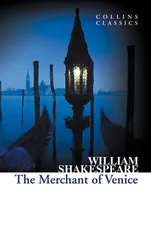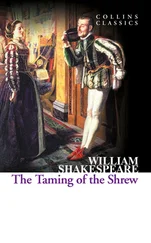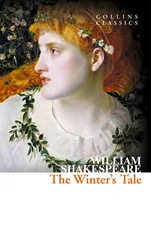William Shakespeare - The Sonnets
Здесь есть возможность читать онлайн «William Shakespeare - The Sonnets» — ознакомительный отрывок электронной книги совершенно бесплатно, а после прочтения отрывка купить полную версию. В некоторых случаях можно слушать аудио, скачать через торрент в формате fb2 и присутствует краткое содержание. Жанр: Классическая проза, на английском языке. Описание произведения, (предисловие) а так же отзывы посетителей доступны на портале библиотеки ЛибКат.
- Название:The Sonnets
- Автор:
- Жанр:
- Год:неизвестен
- ISBN:нет данных
- Рейтинг книги:4 / 5. Голосов: 1
-
Избранное:Добавить в избранное
- Отзывы:
-
Ваша оценка:
- 80
- 1
- 2
- 3
- 4
- 5
The Sonnets: краткое содержание, описание и аннотация
Предлагаем к чтению аннотацию, описание, краткое содержание или предисловие (зависит от того, что написал сам автор книги «The Sonnets»). Если вы не нашли необходимую информацию о книге — напишите в комментариях, мы постараемся отыскать её.
The Sonnets — читать онлайн ознакомительный отрывок
Ниже представлен текст книги, разбитый по страницам. Система сохранения места последней прочитанной страницы, позволяет с удобством читать онлайн бесплатно книгу «The Sonnets», без необходимости каждый раз заново искать на чём Вы остановились. Поставьте закладку, и сможете в любой момент перейти на страницу, на которой закончили чтение.
Интервал:
Закладка:
For thy neglect of truth in beauty dyed?
Both truth and beauty on my love depends:
So dost thou too, and therein dignified:
Make answer Muse, wilt thou not haply say,
'Truth needs no colour with his colour fixed,
Beauty no pencil, beauty's truth to lay:
But best is best, if never intermixed'?
Because he needs no praise, wilt thou be dumb?
Excuse not silence so, for't lies in thee,
To make him much outlive a gilded tomb:
And to be praised of ages yet to be.
Then do thy office Muse, I teach thee how,
To make him seem long hence, as he shows now.
My love is strengthened though more weak in seeming,
I love not less, though less the show appear,
That love is merchandized, whose rich esteeming,
The owner's tongue doth publish every where.
Our love was new, and then but in the spring,
When I was wont to greet it with my lays,
As Philomel in summer's front doth sing,
And stops her pipe in growth of riper days:
Not that the summer is less pleasant now
Than when her mournful hymns did hush the night,
But that wild music burthens every bough,
And sweets grown common lose their dear delight.
Therefore like her, I sometime hold my tongue:
Because I would not dull you with my song.
Alack what poverty my muse brings forth,
That having such a scope to show her pride,
The argument all bare is of more worth
Than when it hath my added praise beside.
O blame me not if I no more can write!
Look in your glass and there appears a face,
That over-goes my blunt invention quite,
Dulling my lines, and doing me disgrace.
Were it not sinful then striving to mend,
To mar the subject that before was well?
For to no other pass my verses tend,
Than of your graces and your gifts to tell.
And more, much more than in my verse can sit,
Your own glass shows you, when you look in it.
To me fair friend you never can be old,
For as you were when first your eye I eyed,
Such seems your beauty still: three winters cold,
Have from the forests shook three summers' pride,
Three beauteous springs to yellow autumn turned,
In process of the seasons have I seen,
Three April perfumes in three hot Junes burned,
Since first I saw you fresh which yet are green.
Ah yet doth beauty like a dial hand,
Steal from his figure, and no pace perceived,
So your sweet hue, which methinks still doth stand
Hath motion, and mine eye may be deceived.
For fear of which, hear this thou age unbred,
Ere you were born was beauty's summer dead.
Let not my love be called idolatry,
Nor my beloved as an idol show,
Since all alike my songs and praises be
To one, of one, still such, and ever so.
Kind is my love to-day, to-morrow kind,
Still constant in a wondrous excellence,
Therefore my verse to constancy confined,
One thing expressing, leaves out difference.
Fair, kind, and true, is all my argument,
Fair, kind, and true, varying to other words,
And in this change is my invention spent,
Three themes in one, which wondrous scope affords.
Fair, kind, and true, have often lived alone.
Which three till now, never kept seat in one.
When in the chronicle of wasted time,
I see descriptions of the fairest wights,
And beauty making beautiful old rhyme,
In praise of ladies dead, and lovely knights,
Then in the blazon of sweet beauty's best,
Of hand, of foot, of lip, of eye, of brow,
I see their antique pen would have expressed,
Even such a beauty as you master now.
So all their praises are but prophecies
Of this our time, all you prefiguring,
And for they looked but with divining eyes,
They had not skill enough your worth to sing:
For we which now behold these present days,
Have eyes to wonder, but lack tongues to praise.
Not mine own fears, nor the prophetic soul,
Of the wide world, dreaming on things to come,
Can yet the lease of my true love control,
Supposed as forfeit to a confined doom.
The mortal moon hath her eclipse endured,
And the sad augurs mock their own presage,
Incertainties now crown themselves assured,
And peace proclaims olives of endless age.
Now with the drops of this most balmy time,
My love looks fresh, and death to me subscribes,
Since spite of him I'll live in this poor rhyme,
While he insults o'er dull and speechless tribes.
And thou in this shalt find thy monument,
When tyrants' crests and tombs of brass are spent.
What's in the brain that ink may character,
Which hath not figured to thee my true spirit,
What's new to speak, what now to register,
That may express my love, or thy dear merit?
Nothing sweet boy, but yet like prayers divine,
I must each day say o'er the very same,
Counting no old thing old, thou mine, I thine,
Even as when first I hallowed thy fair name.
So that eternal love in love's fresh case,
Weighs not the dust and injury of age,
Nor gives to necessary wrinkles place,
But makes antiquity for aye his page,
Finding the first conceit of love there bred,
Where time and outward form would show it dead.
O never say that I was false of heart,
Though absence seemed my flame to qualify,
As easy might I from my self depart,
As from my soul which in thy breast doth lie:
That is my home of love, if I have ranged,
Like him that travels I return again,
Just to the time, not with the time exchanged,
So that my self bring water for my stain,
Never believe though in my nature reigned,
All frailties that besiege all kinds of blood,
That it could so preposterously be stained,
To leave for nothing all thy sum of good:
For nothing this wide universe I call,
Save thou my rose, in it thou art my all.
Alas 'tis true, I have gone here and there,
And made my self a motley to the view,
Gored mine own thoughts, sold cheap what is most dear,
Made old offences of affections new.
Most true it is, that I have looked on truth
Askance and strangely: but by all above,
These blenches gave my heart another youth,
And worse essays proved thee my best of love.
Now all is done, have what shall have no end,
Mine appetite I never more will grind
On newer proof, to try an older friend,
A god in love, to whom I am confined.
Then give me welcome, next my heaven the best,
Even to thy pure and most most loving breast.
O for my sake do you with Fortune chide,
The guilty goddess of my harmful deeds,
That did not better for my life provide,
Than public means which public manners breeds.
Thence comes it that my name receives a brand,
And almost thence my nature is subdued
To what it works in, like the dyer's hand:
Pity me then, and wish I were renewed,
Whilst like a willing patient I will drink,
Potions of eisel 'gainst my strong infection,
No bitterness that I will bitter think,
Nor double penance to correct correction.
Pity me then dear friend, and I assure ye,
Even that your pity is enough to cure me.
Your love and pity doth th' impression fill,
Which vulgar scandal stamped upon my brow,
For what care I who calls me well or ill,
Читать дальшеИнтервал:
Закладка:
Похожие книги на «The Sonnets»
Представляем Вашему вниманию похожие книги на «The Sonnets» списком для выбора. Мы отобрали схожую по названию и смыслу литературу в надежде предоставить читателям больше вариантов отыскать новые, интересные, ещё непрочитанные произведения.
Обсуждение, отзывы о книге «The Sonnets» и просто собственные мнения читателей. Оставьте ваши комментарии, напишите, что Вы думаете о произведении, его смысле или главных героях. Укажите что конкретно понравилось, а что нет, и почему Вы так считаете.











